Last month, the online platform for fashion and lifestyle Zalando announced their new collaboration to accelerate a global sustainability standard in the fashion industry. The tech company, which is not shy when it comes to adopting digital solutions for every aspect of their fashion journey, is the first retailer to use the SAC’s updated version of the Higg Brand & Retail Module (Higg BRM). Committing to driving its business closer towards a system of standardized measurement, Zalando has made sustainability assessment mandatory for all brands selling on their platform.
The Beginning Of An Industry-Wide Change
Although fashion businesses are beginning to commit to change, “sustainability” is still considered to be a loaded term, especially when it comes to accelerating global supply chain sustainability. The main problem is that a standard method to measure sustainable performance has always been missing. The familiar is that fashion brands and retailers have goals that rely on their assessments. This is an approach that has unfortunately resulted in hundreds of certificates, labels, and initiatives that do not mean much to the end consumer but instead blur the line between being and not being sustainable. This is why it is good news that a well-known company like Zalando is “raising the bar, acting first and addressing today’s most important issues: climate change, use of resources and worker rights.”
Pushing for an industry-wide change, Zalando has announced that they are using Higg BRM data to identify trends and explore how to develop solutions that drive meaningful and lasting improvements that make sense. On their decision, Kate Heiny, Director Sustainability at Zalando, said in a press release: “As part of our sustainability strategy, do.MORE, we have made assessments around ethical and sustainable parameters for our brand partners mandatory”.
Raising The Bar
Many fashion insiders have applauded Zalando’s decision to ask all of their brands to provide supply chain information that measures up to an ethical standard. They have raised the bar by confirming that those brands that are unable to do so will be out by 2023. On the bold move, Heiny said: “The Higg BRM will help us achieve our goal to increase our ethical standards continuously and by 2023 only work with partners who align with them.”
So how does the Higg BRM help fashion brands be more environmentally friendly and socially responsible? Well, the tool provides brands and retailers with a comprehensive way to assess their performance around ethical and environmental parameters such as human rights, fair wages, or carbon dioxide emissions. Users can organize their sustainability priorities based on the results.
Encouraging other brands and retailers to support the initiative by using the Higg BRM to measure their sustainability performance and progress, Razvi hopes that the rest industry will follow. It is a point that Heiny supports: “The Higg BRM will establish a global standard for fashion brands and retailers to measure and talk about sustainability performance.” She continues, “For the first time, we will have comparable data at a brand level to identify improvement areas and work on solutions collaboratively. The SAC, as an independent and globally structured organization, is positioned to drive this necessary change in the fashion industry.”
The Technology Behind The Change
Higg Co, a standalone technology company, was spun out of the SAC in 2019 to address this gap and develop the technology behind the Higg Index and its suite of industry tools. On working with Zalando to support the company and its partners in implementing the Higg BRM, Razvi said: “Maintaining strong business relationships, leading with values of sustainability and compassion for the health, safety, and well-being of workers around the world, and leveraging sustainability as a lens for both recovery and rebuilding will be critical for the industry.”
As the coronavirus crisis continues to bring to light many of the challenges the industry continues to face, now is the perfect moment for the fashion industry to follow in Zalando’s footsteps. Why? Because doing so could give fashion businesses the space to understand where the difficulties are both individually and collectively. Also, accelerating the global supply chain sustainability could serve as a catalyst that brings the industry together, so it can, as a whole, implement and achieve lasting change.
Learn how to integrate the Suuchi GRID for greater supply chain transparency
